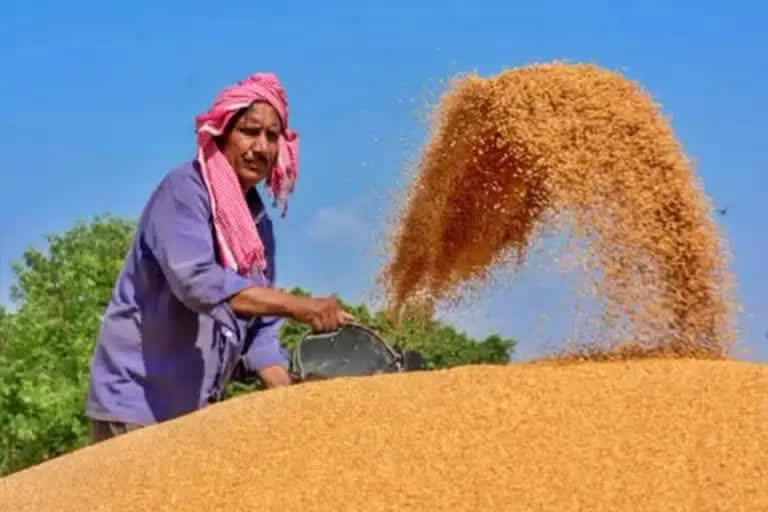Palamu (Jharkhand)/New Delhi: The wheat crisis is evident in the country as the government has replaced it entirely with rice in some states and reduced its quantity in many others under the Public Distribution System (PDS) every month.
While the government has stopped distributing wheat under Pradhan Mantri Garib Kalyan Anna Yojana in Bihar, Kerala and Uttar Pradesh, in seven other states --Delhi, Gujarat, Jharkhand, Madhya Pradesh, Maharashtra, Uttarakhand and West Bengal--the government is giving only 1 kg per family as against 2 it used to a few months ago.
Sources in Jharkhand told ETV Bharat that poor people are provided only 1 kg of wheat and 4 kg of rice impacting at least 19 lakh poor beneficiaries in the state. The talk of a wheat crisis in the country started when the Russia-Ukraine war worsened earlier this year. Following it, in May, India imposed a sudden ban on exporting wheat as inflation soared in the wake of the Ukraine war.
Also read: Watch: Man loads Mercedes with sacks of wheat meant for poor
Sources say if the situation remains the same, the government might stop distributing wheat altogether through the PDS in all states. Pertinently, in May this year, the Union government reduced the amount of wheat to be allocated to states and Union Territories from May to September under the Pradhan Mantri Garib Kalyan Anna Yojana.
It was reported that the reduced quota of wheat will be made up for with rice. The wheat supply to Bihar, Kerala and Uttar Pradesh was stopped under the food security welfare programme and the quota for at least seven other states was reduced.
Asked about it, LP Sharma, Under Secretary, Ministry of Consumer Affairs, Food & Public Distribution, agreed that many states of the country were given only rice in the form of five kilograms of food grains in a month.
Also read: India could have better managed wheat exports and become reliable supplier: Expert
"Initially, it was 3 kg wheat and 2 kg rice. In May 2022, when the procurement of wheat became very low, the ratio was changed. The reason for this was that the procurement of wheat could be reduced. The target was 443 lakh tonnes, while only 187 lakh tonnes were procured. So the purchase has come down significantly. Now since we have to maintain the stock going forward, the ratio had to be changed," said Sharma.
In UP, 56 lakh tonnes of wheat was purchased last year, he said however this year, he said, only 3 lakh tonnes were bought. "Similarly, the purchases decreased in many other states. One, the production of wheat was reduced and the purchase was also reduced. That's why this problem happened," he said.
Another reason for it, he said, could also be the Ukraine war. "Because it may be that the outside traders may have bought from the farmers or the farmers may have held the sale thinking that the price will go up. There can be many reasons. To maintain the buffer for the future, we had to change the ratio," Sharma added.
The Pradhan Mantri Garib Kalyan Anna Yojana was launched to provide free food grains to over 80 crore beneficiaries under the National Food Security Act during the coronavirus pandemic. Under the scheme, the Centre provides five kilograms of foodgrains per person free of cost every month.



